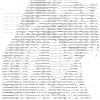For example, I have come across a pretty common (or mediocre) usage of vectors in math. Now, in English,
[color=#000080]cross product is known as the determinant of square matrices, which isn't used to describe similar a similar value for vectors in a 2D environment. Sometimes, when we want to compare two different frames of reference, and we wanted to know if an object is moving either clockwise, or counter-clockwise, we would have to use the cross product and compare it with something for the result. That "something" is a replacement word for "a vector rotation with a specific direction." We have that word, and hopefully you may know some of those words. (Not intented...)
In Danish, the term
[color=#800080]tværvector is used as follows:
A tværvector is the rotation of a 2D vector 90 degrees counter-clockwise.
[/quote]
Ok, maybe we do have a terminology for that, but in a general form (Source, I believed): [color=#008000]The direction of a 90-degrees counterclockwise vector rotation.
Now, expanding outwards away from mathematical terms/linguistics, there are plenty of terms that shortens some English words. I wondered if we are allowed to "invent" new terms, or "borrow" terms from other languages and incorporated them into daily usage? Or maybe even claim a "borrowed" word as our own...
And probably learn something new in this thread. 









